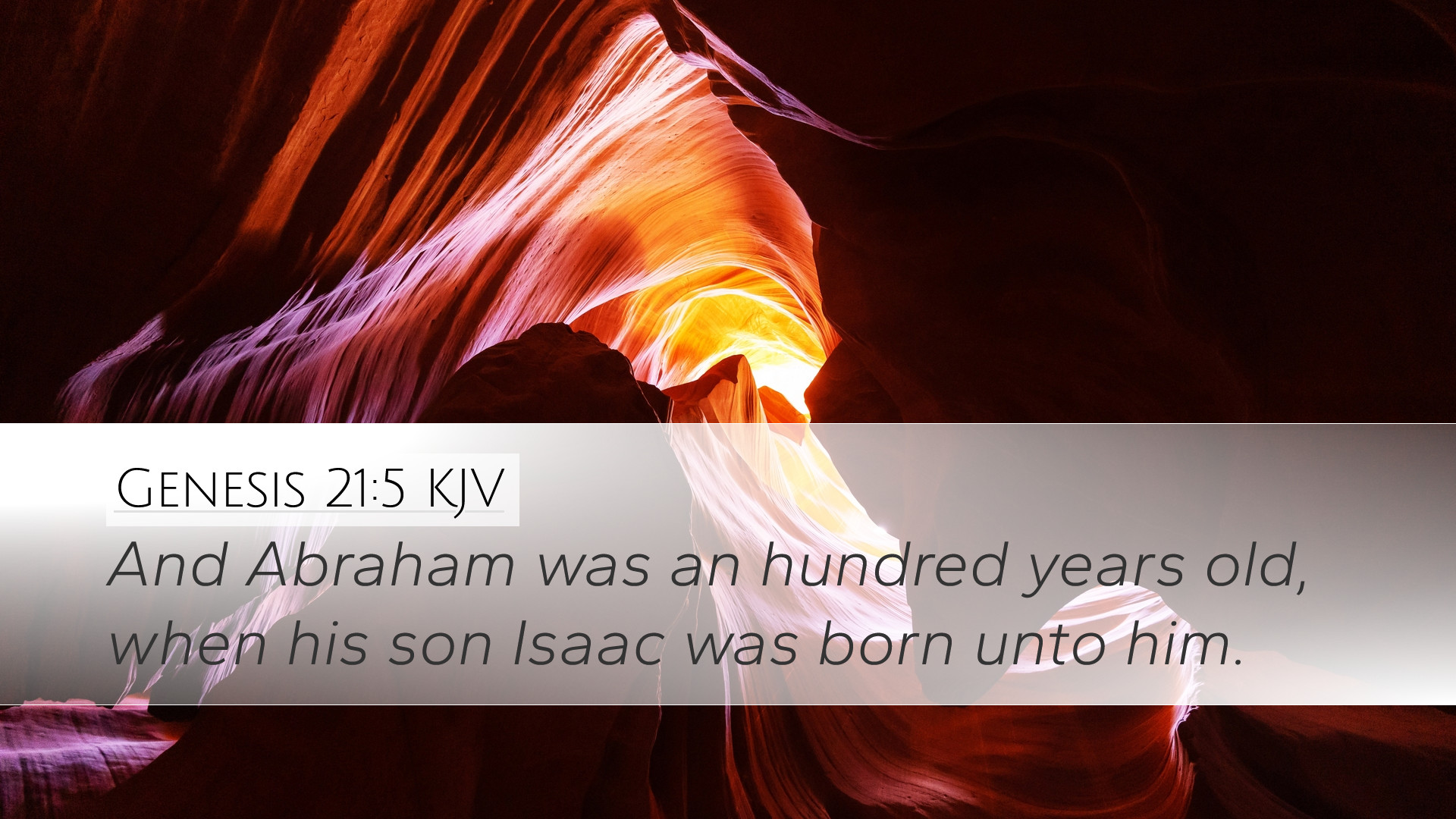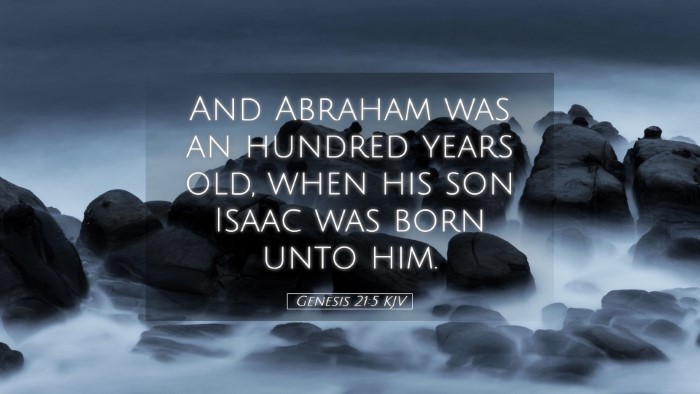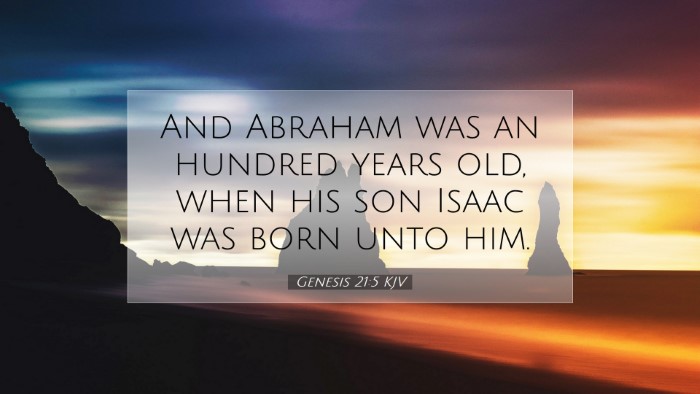Commentary on Genesis 21:5
Genesis 21:5 states, "And Abraham was a hundred years old, when his son Isaac was born unto him." This verse serves as a significant marker in the narrative of Abraham’s life and the unfolding of God’s covenant promises.
Contextual Overview
The passage occurs within the broader narrative of God's covenant with Abraham, highlighting the miraculous birth of Isaac as a fulfillment of divine promise.
The public domain commentaries provide profound insights into the theological, historical, and practical applications of this verse.
Theological Implications
- Divine Sovereignty: Abraham's age (100) emphasizes God's authority over biological limitations. Matthew Henry notes that Isaac’s birth is a testament to God’s power to perform what seems impossible.
- Promise Fulfilled: The birth of Isaac represents the fulfillment of a long-awaited promise. Albert Barnes highlights that it reaffirms God's faithfulness to Abraham and his wife Sarah, who had been barren.
- Covenantal Significance: Adam Clarke points out the importance of Isaac as the heir of the covenant. His birth marks a pivotal moment in the lineage through which God’s redemptive plan unfolds.
A Historical Perspective
The historical context of this event is essential for understanding its significance. Abraham’s trials and eventual hope serve as a narrative arc emphasizing faith and perseverance.
- Background of Waiting: From the promise given in Genesis 12, Abraham and Sarah endured years of waiting and doubt. The long period before Isaac's birth highlights the theme of faith in God’s timing.
- Fulfillment in Context: As noted by Barnes, the age of Abraham serves as a stark contrast to cultural norms concerning parenthood, thereby magnifying the miracle of Isaac’s birth.
Character Insights
This verse also sheds light on the characters involved, particularly Abraham and Sarah:
- Abraham’s Faith: Matthew Henry reflects on Abraham’s unwavering faith despite the physical realities, which serves as an example for believers to trust in God’s promises.
- Sarah’s Transformation: The narrative shows Sarah’s transition from doubt to joy. Clarke emphasizes how her laughter transforms into a testimony of joy, symbolizing the reversal of her barrenness.
Spiritual Applications
For pastors, theologians, and students, the insights drawn from this verse can be applied to contemporary spiritual life:
- Waiting on God: Just as Abraham waited for Isaac, believers are called to wait on God's promises in their lives, which may often seem delayed or impossible.
- Acknowledgment of God's Power: Recognizing that God can bring forth life from barrenness should instill hope and courage in believers facing impossible situations.
- The Importance of Faith: The faith exemplified by Abraham is a powerful reminder for believers to cling to God's word and promises regardless of circumstances.
Conclusion
Genesis 21:5 encapsulates a pivotal moment in biblical history. The miraculous birth of Isaac highlights God's faithfulness and power, calling believers to reflect on their trust in divine promises.
As we delve into the layers of meaning within this verse, we find rich theological truths and practical applications for our journey of faith.


